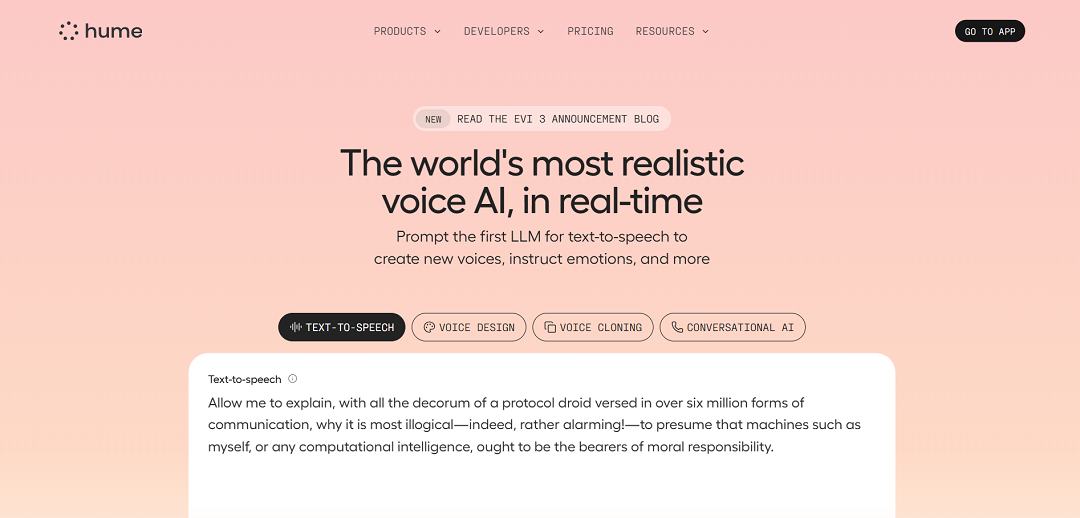

Hume AI is a New York–based research and technology company focused on building emotionally intelligent artificial intelligence that can understand, respond to, and even replicate human emotions. Founded in 2021 by psychologist Alan Cowen, formerly at Google DeepMind, and John Beadle, the company takes its name from philosopher David Hume, who argued that emotions drive human behavior and decision-making. True to this inspiration, it aims to ensure that AI systems are not only functional but also empathetic, aligning technology with human well-being. The company’s mission is supported by The Hume Initiative, a non-profit ethical framework that emphasizes transparency, inclusivity, empathy, and consent in the use of emotion AI. At the core of Hume AI’s technology are tools that measure and interpret emotional expression across multiple channels, including voice, text, and facial cues. Their Expression Measurement API goes beyond traditional sentiment analysis by mapping a broad spectrum of nuanced emotional states such as amusement, awe, frustration, or empathy.
Building on this foundation, Hume developed its Empathic Voice Interface (EVI), which allows AI systems to adapt responses in real time based on the detected emotional tone, creating more natural and human-like interactions. Another innovation is Octave, a voice-based large language model that predicts tone, cadence, and expressive delivery, making text-to-speech more lifelike and emotionally rich. In its latest iteration, EVI 3 introduces advanced voice cloning, capable of capturing a person’s unique tone and emotional style from just a short sample, while incorporating safeguards against misuse. These technologies have broad applications across healthcare, education, customer support, HR analytics, and even mental health, where emotion-aware AI can provide more compassionate assistance. Since its founding, it has attracted significant investment, raising over $67 million through multiple funding rounds, with its Series B led by EQT Ventures, Union Square Ventures, and others, valuing the company at over $200 million. Despite the promise, challenges remain, particularly around cultural variation in emotional expression, potential bias, and ethical concerns about manipulation or impersonation. Even so, it is at the forefront of redefining human-machine interaction, creating a future where AI doesn’t just process information but also recognizes how we feel, aiming to make technology more empathetic and human-centric.